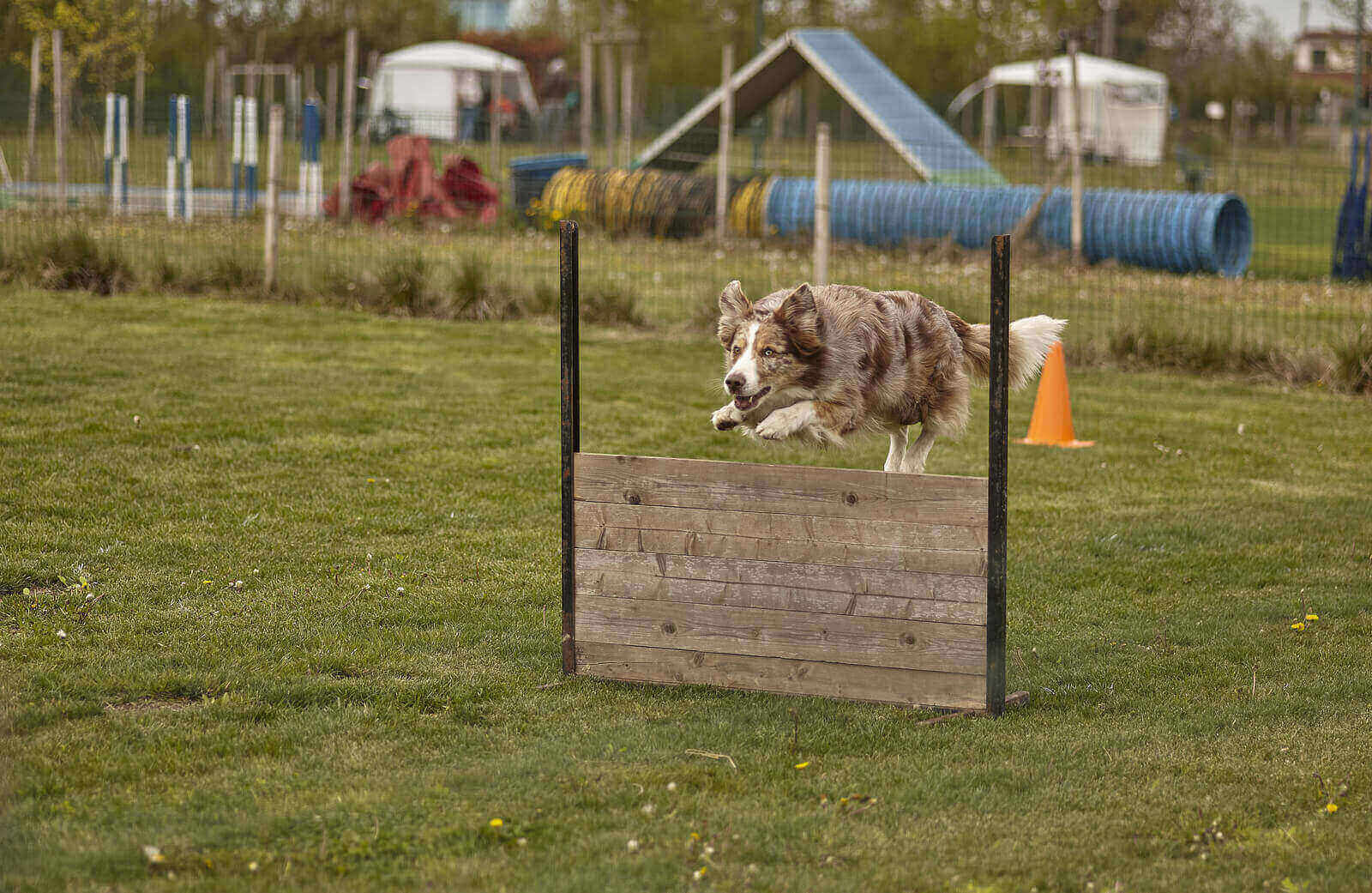Sometimes, while administering Rimadyl to a dog, you may end up giving twice the recommended dose. Upon realizing that you accidentally gave your dog a double dose of Rimadyl (also known as Carprofen), you are bound to have a myriad of worries. You are likely to have worries on how the overdose is likely to affect the dog. Also on whether the dog will survive, and what you ought to do next. In this article, we address all those concerns.
If I accidentally gave dog double dose of Rimadyl, what are the implications? In most cases, the dog should still be OK, if it is a one-time double dose (and nothing more). But there are also cases where the dog may suffer gastrointestinal problems, and possibly even kidney and liver problems after the Rimadyl double dose.
It is best to call the vet who prescribed the Rimadyl. Explain that you accidentally gave a double dose, and request for advice on what to do next.

In most cases, the vet will advise you to keep a close eye on the dog. In case of severe adverse reactions (such as lethargy, vomiting, black tarry stools, jaundice and abnormal urination), you will need to take the dog to the vet immediately.
Treatment may entail inducing the dog to vomit any Rimadyl in its stomach. It may also entail using activated charcoal to absorb the Rimadyl from the dog’s body.
Further, treatment for a dog that was accidentally overdosed on Rimadyl may entail the use of IV fluids. These are to flush the drug from the dog’s systems. But where there are no adverse reactions, you may only need to skip the next dose or Rimadyl. Then restart the drug at the appropriate dose.
What Is Rimadyl?
Rimadyl is a drug that alleviates pain, as well as inflammation in various animals – including dogs. The types of pain it is effective at treating include those that come with arthritis, as well as the pains that dogs experience after surgical operations. It is in the category of medications we refer to as Nonsteroidal Anti-Inflammatory Drugs (NSAIDS). Rimadyl is actually a brand name for a drug whose original generic name is ‘Carprofen’.
Rimadyl is normally available on prescription basis only. It usually comes in the form of caplets or chewable tablets.
This background information is essential before proceeding to deal with the questions on what to do if you accidentally gave dog double dose of Rimadyl.
So Rimadyl (generic name Carprofen) is a pain and inflammation relief medication. It is usually available in caplet or chewable tablet form. And its main uses are in the treatment of arthritis joint pain as well as post-operative pain.
What Does Rimadyl Do To A Dog?
If you administer it at the right dosage, Rimadyl alleviates the joint pain that dogs with arthritis experience. It can also reduce the pain which dogs that have undergone surgical procedures typically experience. But these positive effectives only come if you follow the right Rimadyl dog dosing guidelines.
Thus, with the right dog Rimadyl dosage, you can achieve good pain relief. That is especially with respect to joint pain and post-operative pain.
If you administer too much Rimadyl to a dog, it may cause the dog to have ulcers in its gastrointestinal tract. It may also go further, and cause great harm to the dog’s kidney and liver. This is really not unique to Rimadyl.
It is in line with generally what happens if you give your dog too much medication (especially if the medication is in the nonsteroidal anti-inflammatory drugs class).
Even with the right dosage, dog Rimadyl side effects do sometimes occur. These may include things like dog Rimadyl diarrhea, Rimadyl dog vomiting, lethargy, increase in thirst and increase in urination. Rimadyl, like all other medications, has side effects.
Still, in cases where the side effects are particularly bad, dog owners are usually advised to consult their vets. The vets may then give dog Rimadyl alternative substitutions.
How Often To Give Dog Rimadyl?
Rimadyl is usually available as a prescription drug. As such, it is the prescribing vet who will give you instructions on how often to give dog Rimadyl. In most cases though, Rimadyl is usually given once or twice a day. The most important thing is to follow the instructions that your vet gives you on how often to administer Rimadyl.
If you give Rimadyl to your dog too often than your vet recommends, you may end up inducing a Rimadyl dog overdose. This may in turn lead to various nasty outcomes. In the worst case scenarios, it is actually not uncommon to hear a dog owner complaining that Rimadyl killed my dog, following an overdose.
On the other hand, if you give Rimadyl to your dog less often than your vet recommends, you may end up with a situation of dog Rimadyl not working. So it is important to ensure that you follow your vet’s instructions carefully. This is especially with regard on how often you should give the Rimadyl.
Further, in a situation where you accidentally gave dog double dose of Rimadyl, it is important to ask the vet for advice on how often to administer the drug thereafter. The vet may advise you to give it less often, following the overdose incident or to skip a dose. The objective would be to get the excess Rimadyl out of the dog’s system, before resuming normal administration.
Accidentally Gave Dog Double Dose Of Rimadyl – What To Do?
The best thing to do, if you accidentally gave dog double dose of Rimadyl is to call a vet. This should ideally be the vet who prescribed it. Then tell the vet that you accidentally gave the dog a double dose. Thereafter, the vet will advise on the right course of action to follow.
If it is a one-time double dose of Rimadyl, the adverse effects are likely to be mild, or even absent.
But if it is a situation where you have administered several double doses of Rimadyl (perhaps due to having initially misunderstood the instructions), then the adverse effects may be worse.
Where it is a one-time double dose (and nothing more), the vet may advise you to watch the dog closely. The vet will then tell you how long does it take for Rimadyl to wear off and what to do if there are adverse reactions within/after that period.
Further, the vet may advise you to skip the next dose, then restart the Rimadyl at normal dose. Of course, if the dog has already started manifesting nasty effects following the one-time Rimadyl overdose, the case is different. In this situation, the vet will typically ask you to take the dog to the clinic immediately.
Where you have given the dog several double doses of Rimadyl, the vet may request you to take the dog to the clinic, for tests to check whether the drug has messed up the dog’s systems.
But then again, the vet may figure out that the double dose is still within the tolerable range for the dog. In this case, the vet will only ask you to keep a close eye on the dog. He will then tell you to revert to the appropriate dose.

Accidentally Gave Dog Double Dose Of Rimadyl – Will He Be Alright?
If you accidentally gave dog double dose of Rimadyl, the main concern you are likely to have is as to whether the dog will be alright. And the good news is that, in most cases, the dog should be alright. This is especially the case where you only gave one double dose of Rimadyl, and nothing more.
Still, it is a good idea to call the vet who prescribed the drug. Then tell him that you accidentally gave dog double dose Rimadyl, and request advice on the best way forward.
Very rarely does a one-time double dose of Rimadyl cause very nasty adverse effects. Much of what we read about dog Rimadyl kidney failure, liver failure or stomach ulcer complications typically occurs where, for instance, a dog happens to ingest a whole tin full of Rimadyl tablets. The tablets have liver flavor, hence very attractive to dogs.
But where it is just a one-time scenario where dog ate double dose of Rimadyl, the situation is unlikely to get that ugly. So, to reiterate, if you accidentally gave dog double dose of Rimadyl (and it was only a one-time double dose and nothing more), then he will probably be alright.
What we say here of course only applies to dogs, which are rather resilient animals. But if, for instance, you gave your cat a double dose of Rimadyl and you are wondering will Rimadyl hurt my cat (now that I gave a double dose), then the answer may be different. For a dog though, a one-time double dose is unlikely to be too much of an issue.
How Much Rimadyl Is Safe For Dogs?
The amount of Rimadyl that is safe for any dog is that which is prescribed. Anything beyond the prescription level is potentially unsafe.
Typically, vets will prescribe 2 mg of Rimadyl per pound of dog weight once per day. Therefore, if you have been wondering how much Rimadyl can I give my 40 pound dog, then it should be something in the 80 mg once per day range. But because there is no 80 mg tablet, the vet may advise you to give the 75 mg tablet or the 100 mg tablet.
All in all, the amount of Rimadyl that is safe for a dog is that which is prescribed. If you go beyond that, you will be putting your dog in danger. Therefore if you accidentally gave dog double dose of Rimadyl, then it is not safe. You need to call the vet who prescribed the drug, explain the situation, and get guidance on how to proceed.
How Much Rimadyl Is An Overdose?
Any amount of Rimadyl that is above the vet’s prescription is potentially an overdose. It may not actually kill your dog, if you have been wondering how much Rimadyl will kill a dog. But it may cause the dog severe problems, depending on how high above the recommended dose you have gone.
Accidentally Gave Dog Double Dose Of Rimadyl – Will Rimadyl Hurt My Dog?
If you accidentally gave dog double dose of Rimadyl, then it may it or may not hurt the dog. Much depends on whether it was a one-time double dose, or you have given several double doses (perhaps because you misunderstood the instructions). Much also depends on the dog’s sensitivity to Rimadyl.
If the Rimadyl does it hurt your dog, the damage is likely to be in the stomach, kidney and liver. Therefore if you have been wondering will Rimadyl upset a dog’s stomach if I gave a double dose, then you have the answer. It may or it may not: depending on how many times you have given double doses, as well as the dog’s sensitivity to the drug.
It is important to note that due to high sensitivity to the drug, there are animals that suffer side effects even at normal Rimadyl dosages. Now if such a dog takes a double dose of the drug, the effect can be particularly bad.
How Much Rimadyl Is Too Much?
Rimadyl is available as a prescription medication. Vets usually give instructions on the quantities of Rimadyl to give, and how often. Anything above the vet’s recommendations for any animal is too much, and has potential to cause harm.
What Happens If A Dog Takes Too Much Carprofen?
Carprofen is the generic name for Rimadyl. Now what happens if a dog takes too much Carprofen/Rimadyl depends on how much excess Carprofen the dog takes.
If, for instance, you accidentally gave dog double dose of Rimadyl, the outcome is likely to be very different from another case of a dog that ingested a whole tin full of Carprofen tablets. All in all, where adverse effects occur, they are usually in terms of stomach ulcers, kidney damage and liver damage.
In practical terms, if a dog takes too much Carprofen, he may experience vomit or diarrhea. He may also have seizures, become lethargic, and start passing black tarry stools. Further, the dog may lose appetite, start drinking too much water/urinating too much and develop jaundice. Taking too much Carprofen may ultimately cause the dog to die.
What To Do If Dog Overdose On Rimadyl?
If it is a big overdose (like where the dog ate a whole tin full of Rimadyl tablets), rush him to the vet ER immediately.
If it is a smaller overdose, like where you gave a one-time double dose of Rimadyl, the best step to take is that of calling the vet who prescribed the Rimadyl. Then explain that you accidentally gave dog double dose of Rimadyl, and request for advice on the way to go forward. The vet may advise you to take the dog to the clinic. Or he may advise you on how to care for the dog at home.
Dog Rimadyl Overdose Treatment
In most cases, dog Rimadyl overdose treatment starts with attempts to induce vomiting. The idea is to get the dog to throw up any Rimadyl that may be still in its stomach.
The next step is typically that of administering activated charcoal. The goal is to get the charcoal to absorb the Rimadyl from the body. Then IV lines may be set up, to try to flush the Rimadyl from the dog’s liver and kidneys. Liver and kidney tests may be necessary, to assess any possible damage. Those may be followed by supportive treatment, to address any damage that may have taken place.

Final Verdict – Accidentally Gave Dog Double Dose Of Rimadyl
If you accidentally gave dog double dose of Rimadyl, it is ideal to call the vet who prescribed the drug. Inform him about the situation, and get advice on the best way to proceed. If it is a one-time Rimadyl double dose, it is unlikely to cause major problems.
That is, unless the dog happens to have too much sensitivity to the drug. You may be advised to just skip the next dose of Rimadyl, then restart it at the right dosage thereafter.
As a pet lover, don’t accidentally give dog double dose of rimadyl or apoquel or heartgard, and be more careful with your pet dog health.

Welcome to Learn About Pet. My name is Rajkumar Ravichandran and I love all pets, travel, and amazing food. I write about my passion and personal experience caring for multiple pets in this blog! ❤️
Post Disclaimer
DISCLAIMER: THIS BLOG OR WEBSITE, "Learn About Pet", DOES NOT PROVIDE YOU WITH MEDICAL ADVICE AND IS NOT A SUBSTITUTE FOR MEDICAL ADVICE. ALWAYS GET IN TOUCH WITH YOUR PERSONAL VETERINARIAN AND USE INFORMATION HERE AS GENERAL ADVICE.
The information, including but not limited to, text, graphics, images and other material contained on this website are for informational purposes only. No material on this site is intended to be a substitute for professional veterinary advice, food recommendation, diagnosis, or treatment. Always seek the advice of your veterinarian or other qualified health care provider with any questions you may have regarding a medical condition or for pet food related questions.







